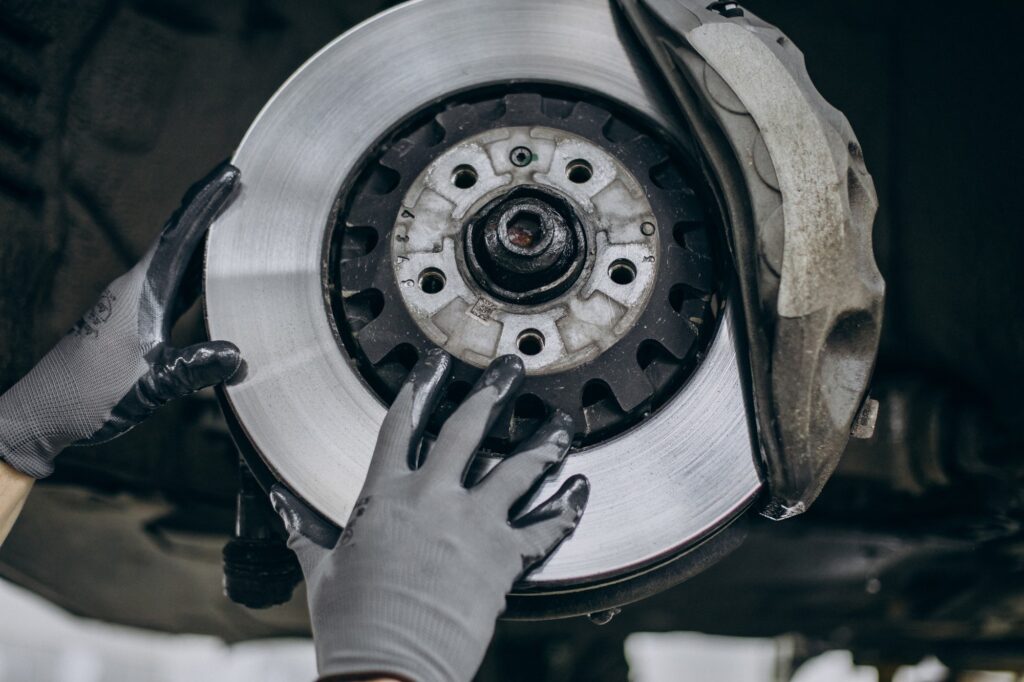Introduction
Brake calipers endure intense pressure and heat, making them prone to wear and failure over time. Regular maintenance can extend their life, prevent costly replacements, and keep your braking system reliable. In this article, we’ll share practical tips on how to maintain brake calipers, from cleaning to lubrication, ensuring they perform at their best for years.
Why Brake Caliper Maintenance Matters
- Prevents Sticking: Dirty or unlubricated calipers can seize, causing uneven braking.
- Extends Lifespan: Proper care can double a caliper’s life (typically 5-10 years).
- Saves Money: Avoiding premature failure reduces repair costs.
- Ensures Safety: Well-maintained calipers provide consistent braking power.
Brake Caliper Maintenance Tips
- Clean the Calipers Regularly
- How: Use brake cleaner and a wire brush to remove dirt, dust, and brake dust buildup.
- Why: Debris can cause pistons to stick or seals to wear out faster. Clean every 6 months or during brake pad changes.
- Lubricate the Slide Pins (Floating Calipers)
- How: Remove the pins, clean them, and apply high-temperature brake grease.
- Why: Prevents sticking, ensuring smooth movement. Do this annually or with pad replacements.
- Check for Brake Fluid Leaks
- How: Inspect the caliper for wet spots or fluid on the ground. Check the reservoir level regularly.
- Why: Leaks reduce pressure and signal worn seals—replace seals or the caliper if needed.
- Inspect for Corrosion
- How: Look for rust on the caliper body, especially in salty or humid climates.
- Why: Corrosion can seize pistons—clean light rust or replace heavily corroded calipers.
- Ensure Proper Brake Pad Wear
- How: Check pads for even wear during inspections.
- Why: Uneven wear indicates a caliper issue—address it early to avoid damage.
- Bleed the Brake System Annually
- How: Use a brake bleeder kit to remove old fluid and air.
- Why: Fresh fluid prevents corrosion and maintains hydraulic pressure.
- Avoid Overheating
- How: Drive smoothly, avoiding hard braking when possible.
- Why: Excessive heat warps calipers and damages seals—gentle braking extends their life.
Tools for Brake Caliper Maintenance
- Brake cleaner
- Wire brush
- High-temperature brake grease
- Brake bleeder kit
- Socket set (for pin removal)
Common Maintenance Mistakes to Avoid
- Using the Wrong Grease: Regular grease melts under brake heat—use brake-specific products.
- Ignoring Small Leaks: Even minor leaks can worsen, leading to failure.
- Skipping Inspections: Regular checks catch issues early.
Conclusion
Maintaining brake calipers with cleaning, lubrication, and inspections can prevent failure and save you from expensive replacements. Make these tasks part of your routine—your brakes will thank you with reliable performance and safety.
Call-to-Action:
What’s your favorite caliper maintenance tip? Share in the comments, and see our signs of bad calipers article!

